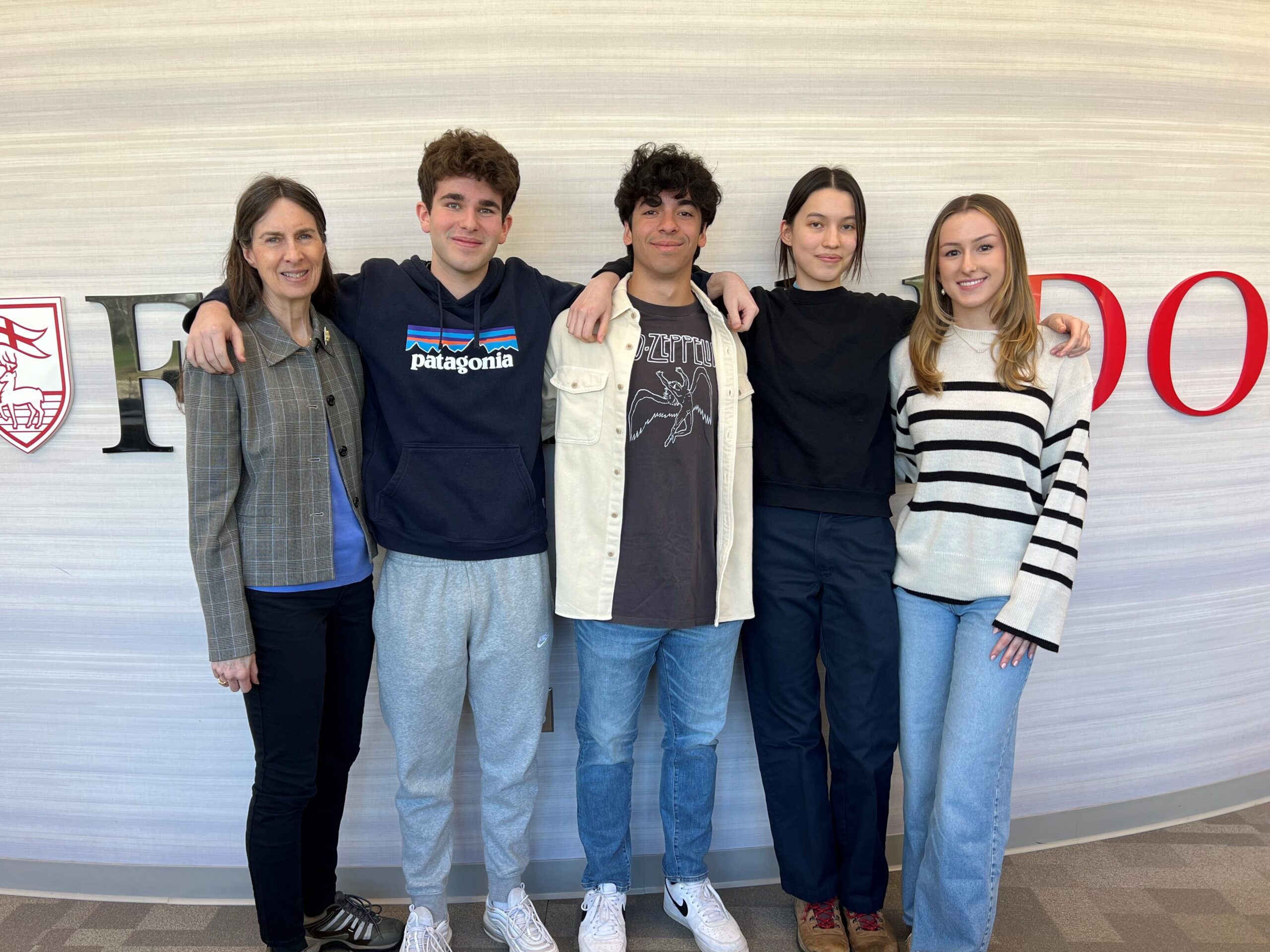Michael Smith Business Ethics Case Competition: The Ethics Of AI
By John Paul Brissette ’25

The ability of artificial intelligence to revolutionize many fields is not a shock. The tools are growing more and more advanced. For example, ChatGPT has hundreds of millions of users turning to AI chatbots for everyday things like writing papers, asking questions, planning trips or many other tasks it’s capable of completing. In a 2024 Deloitte survey of over 2,800 business and technology leaders, the most common emotion used to describe the rise of AI was “excitement” and 79 percent expected AI would cause major transformations to their organizations and industries over the next three years.
Yet this isn’t without turmoil. AI is known to “hallucinate,” or provide users with completely fabricated information. Copyright challenges are on the rise with dozens of authors suing companies like OpenAI and Microsoft for chatbots infringing on their intellectual property. Countries like Italy have begun to ban chatbots and enact regulations because of concerns related to privacy issues. One question remains: is AI ethical?
Twelve colleges and universities from Canada, Mexico, and across the United States worked to answer that question at the Michael Smith Business Ethics Case Competition, sponsored by the Ethics in Business Education Program of the Providence College School of Business on Saturday, February 24.
This year, teams working virtually tackled the ethical ramifications of AI, which is at the forefront of people’s minds. This topic is particularly timely and relevant, given the increasing use of artificial intelligence in society. Teams addressed cutting-edge issues and complex challenges posed by these emerging technologies. The U.S. Congress has been holding hearings on how to regulate AI. The challenge to the ethics teams was to answer the question: “are regulations needed for greater safety and well-being of society?” They were asked to discuss AI in the context of three out of five ethical theories: virtue, deontology, utilitarianism, justice, or Catholic social teaching.
College ethics competitions like this offer a holistic learning experience, blending knowledge with practical application, and preparing students for the ethical challenges they may encounter in their future careers. This is a foundational tenet of our education at Providence College. “Providence College’s liberal arts education fosters critical thinking and effective communication,” said Patrick Kelly, Ph.D., professor of accountancy and director of the Ethics in Business Education Program.
The team representing Providence College consisted of Adam Sienkiewicz ’25, Jillian Mike ’25, Meredith Valentine ’24, and Emma Ricciardelli ’25, who won the campus-wide ethics competition in October.
The team from Fairfield University was awarded first place. Quinnipiac University took second place. Providence College placed third in the competition. These results showcase Providence College’s commitment to ethical leadership and discussions as a community. The Michael Smith Business Ethics Case Competition stands as a testament to the dedication of the Providence College School of Business to providing an educational experience that goes beyond traditional classroom learning to prepare students to navigate the ethical complexities of the business world.





